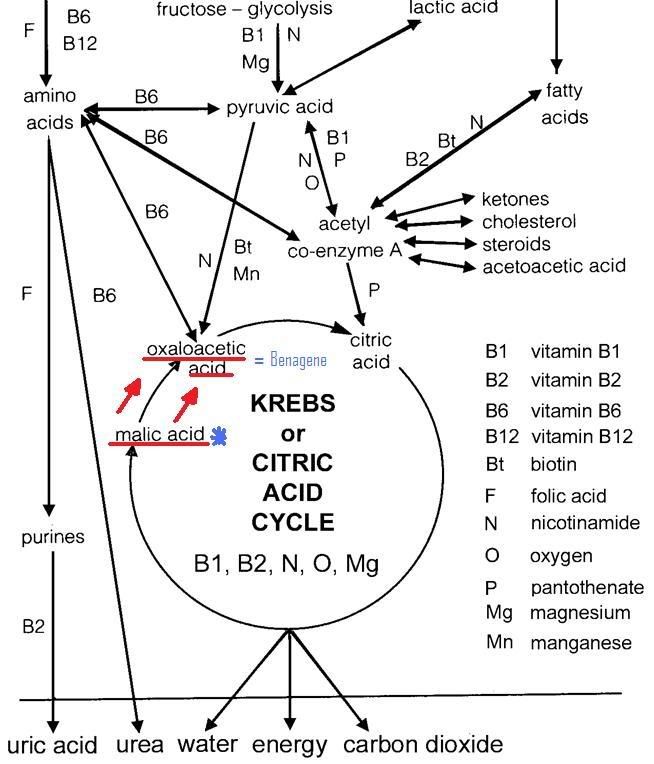I am very interested in Benagene however as many have mentioned I cannot justify the price at this time, so here are some thoughts.
Malic acid converts directly to oxaloacetic acid (3-carboxy-3-oxopropanoic acid) the active ingredient of Benagene...
http://www.answers.c...ic/oxaloacetate
http://users.mrbean....last/HF5-2.html
It stands to reason that taking Malic Acid would be almost as effective as directly supplementing the Benagene compound... Malic Acid is very cheap and stable.
Any thoughts?
**********
benaGene™ contains a key intermediate in the Kreb's Cycle.
30 Vegi-Caps 200 mg 100% Vegetarian
_____________________________________________
SUPPLEMENT FACTS:
Serving Size: 1 Capsule
____________________________________________________
benaGene™ (3-carboxy-3-oxopropanoic acid) .......... 100 mg
Vitamin C .......................................................... 100 mg
____________________________________________________
*********
3-carboxy-3-oxopropanoic acid = oxaloacetic acid
http://www.ebi.ac.uk...iId=CHEBI:30744
again
oxaloacetic acid is produced by the oxidation of Malic Acid in the Krebs Cycle
http://www.answers.c...ic/oxaloacetate



















































